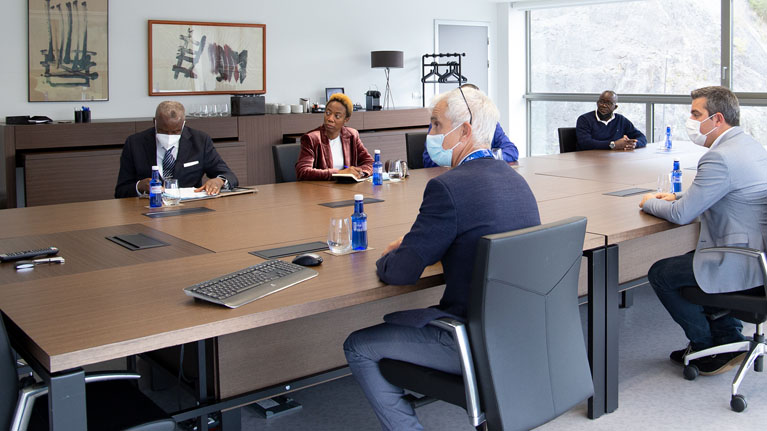Sensor devices used in sustainable cocoa production process in Cameroon
Tekniker is currently involved in a project called ‘Life Kontainer’ whose aim is to provide a prototype of a sensor device for data collection during cocoa fermentation and drying processes. The technology has already been tested at several crop fields in this African country as an initial step towards developing solutions aimed at improving productivity levels and enhancing marketing actions for this product the Basque Country.

With more than 300 tons of cocoa produced every year, Cameroon is the world’s fifth largest producer and has Europe as its biggest customer. It was in 2019 when the “Life Kontainer” cooperative project was born with a view to improving cultivation practices in the country by implementing sustainable production solutions and enhancing the commercialisation practices of this product in the Basque Country.
It is in this context that Tekniker, a member of the Basque Research and Technology Alliance, has supported this initiative by contributing the organisation’s extensive experience with regard to developing and integrating compact and robust solutions that are not only easy to implement but also generate digital ecosystems that can achieve sustainable development.
Georges Belinga, founder of Koop SF 34, the association behind the “Life Kontainer” initiative, explains that “in the process of incorporating technological solutions based on knowledge originating from the Basque Country we believe that Tekniker is a key stakeholder due to its high degree of specialisation and technological capabilities in areas such as digitisation, smart industry and developments related to advanced sensorics”.
Fermentation and drying
More specifically, Tekniker has developed an advanced infrared sensor device that can collect spectroscopic information on cocoa seeds to pursue a twofold objective.
“On the one hand, we intend to obtain all the knowledge and data required to evaluate the feasibility of these tools to assist decision making as well as improve and optimise cocoa production processes. On the other, our mission consists in facilitating the introduction of digital technologies in unique production environments and evaluating and improving their applicability”, adds Joseba Izaguirre, coordinator of sensor devices at Tekniker.
This technology, that has already been tested at several cocoa crop fields in the central regions of Cameroon to obtain seed data during fermentation and drying processes, has also allowed the technology centre to evaluate and validate its technological developments based on sensoring devices installed in new ecosystems and applications. It also offers the opportunity of developing potential products that could be transferred to other local industrial firms to meet the demands of international value chains.
“In phase one of this implementation, our main focus has consisted in analysing the extent to which it will be possible to use this device to obtain field production data in an environment characterised by demanding environmental conditions”, stresses Joseba Izaguirre.
Mr Paulin Godfried Reliques Yanga, Cameroon’s Ambassador Extraordinary and Plenipotentiary in Spain visited the technology centre’s facilities yesterday afternoon, October 25, to learn more about this collaborative effort and take a closer look at the work done by Tekniker with regard to technological developments in the primary sector.
The ultimate goal of the project in which this collaboration is taking place is to produce “bio” cocoa that will bear the Basque Country’s quality label (‘Euskolabel’) and help agricultural cooperatives in Cameroon to improve the productivity and quality of their crops and production processes to later commercialise these products in the Basque Country.
In order to achieve this objective, the initiative has been funded by the Basque Agency for Development Cooperation (Elankidetza) and has been supported by diverse organisations such as the Bizkaia Koopera programme launched by the Provincial Department of Labour, Social Inclusion and Equality of the Provincial Council of Bizkaia to deliver a solution based on a scalable technological infrastructure that can boost local economic development and growth in the environment where it is deployed.
